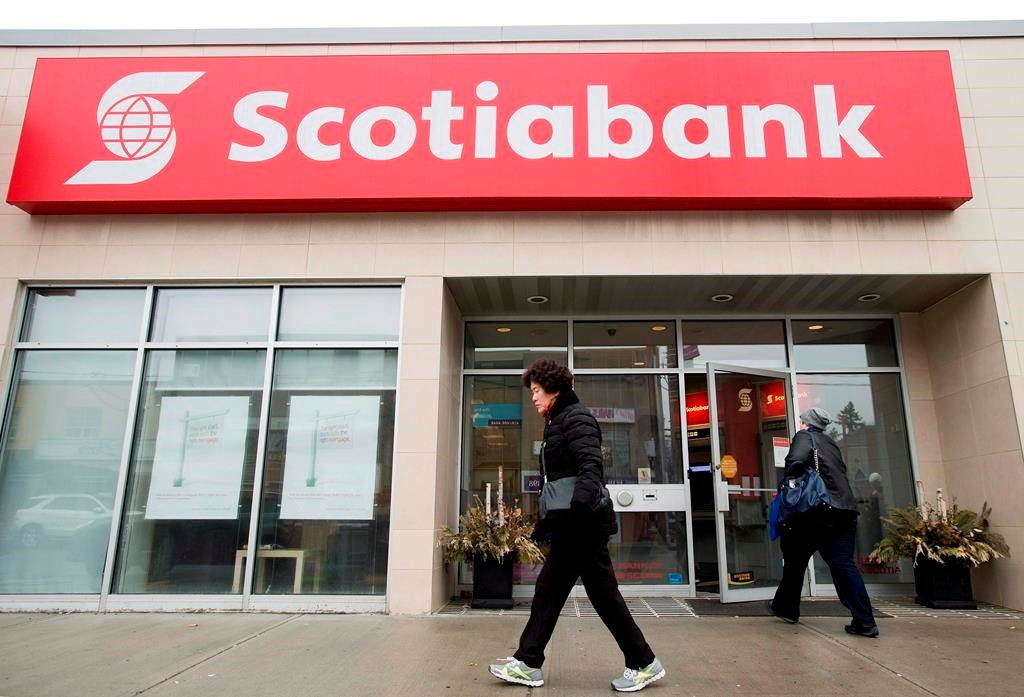Scotiabank launches $500-million ScotiaRISE initiative to improve job and educational prospects
Why It Matters
Major financial institutions are warning that the COVID-19 pandemic’s economic downturn will not abate once case counts drop. The virus will have severe, long-term impacts on workforce improvement and training prospects in Canada and around the world.

As the COVID-19 pandemic enters a troubling new phase, Canada’s third-largest bank is promising to invest $500-million over the next decade into charities and non-profits focused on promoting “economic resilience” among disadvantaged groups.
“ScotiaRISE is designed to give greater access to opportunities that help more people, households, and communities across our footprint participate more fully in the economy,” said Brian Porter, president and CEO of Scotiabank, in a statement on Tuesday morning.
This new initiative is promising to invest in charities and non-profits focused on educational outcomes, including the improvement of high school graduation rates and post-secondary enrollment. It also plans to fund projects that help newcomers more easily secure jobs they are qualified for upon arrival in their new homes, and help oppressed groups advance more easily in their careers.
“There was no question that the conversation we’re all having…is, how resilient are people in the face of upheaval?” Sandra Odendahl, vice-president of social impact and sustainability at Scotiabank, told Future of Good. “Who are the people that are more vulnerable? And even when times are good, are we doing enough for people to help them feel like they’re in a position where they can succeed, or at least weather the storm?”
Odendahl recalls being struck by two sets of statistics when looking into an initiative on supporting job and educational prospects. One was the stark difference in the unemployment rate between workers who hadn’t finished high school and those who had — especially in Latin America. Another was the difference financial support can make in the lives of newcomers.
While ScotiaBank was already starting to look at the idea of launching an economic resilience program before the COVID-19 pandemic hit, Odendahl said the virus solidified their decision. When the pandemic reached Canada, her team had to put aside the project and focus on community support projects and only picked ScotiaRISE back up in the summer.
“Whether it’s helping an internationally trained doctor to practice medicine in Toronto, or a high school student graduate in Santiago, Scotiabank understands the value in helping everyone achieve their potential,” Scotiabank’s statement said. “By investing in our communities, ScotiaRISE aims to increase economic inclusion, stability and mobility for everyone.”
This new initiative launch comes amid a resurgence of COVID-19 cases across many Global North countries, including Canada. The United States, still the most impacted country in the world, shows no signs of improvement. Major financial institutions such as the World Bank are worried about the state of the global economy in the long-term, even after the pandemic is long over.
“The pandemic has caused a severe loss of life, is tipping millions into extreme poverty, and is expected to inflict lasting scars that push activity and income well below their pre-pandemic trend for a prolonged period,” the Bank said in a January outlook report.
The World Bank expects to see a lasting impact on skills development among workers and investments by private companies, especially in the Global South, and urges governments to consider spending on health and education improvements. ScotiaRISE is open to organizations in any country where Scotiabank currently operates, which includes North and South America, the Caribbean, four European countries, and nine Asian and Oceania countries.
ScotiaRISE is open to registered non-profits and charities that can prove a “sustained record of achievement” through programs with measurable impact. The initiative will not consider religious groups unless they are willing to provide secular services to all, advocacy groups, political organizations, or lobbying activities.
It also won’t consider self improvement organizations “where participation is intended primarily for the personal advancement or benefit of the participant,” according to ScotiaRISE’s funding guidelines.
Anyone looking to apply for ScotiaRISE funding must provide a description of their project, including budget and defined metrics, as well as current audited financial statements and a complete list of directors.
